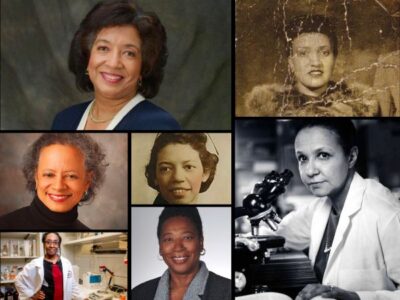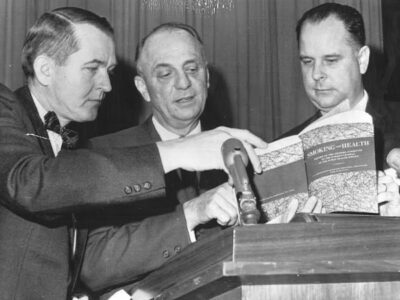On her first day of medical school at the University of Virginia in 1963, Vivian Pinn waited for the other students who looked like her to show up.
As a student at MIT in the 1970s, Roderic Pettigrew was writing his PhD thesis on how a controlled nuclear reaction in the brain, boron neutron activation therapy, could be used to treat glioblastoma multiforme.
Commemorate the legacy of Black women in oncology with these highlights from the Cancer History Project.
This month, Robert A. Winn returns to his role as guest editor of The Cancer Letter and the Cancer History Project during Black History Month.
Edith P. Mitchell, a pioneering researcher in cancer health disparities, director of the Center to Eliminate Cancer Disparities, professor of medicine and medical oncology, and enterprise vice president for cancer disparities at Jefferson Health’s Sidney Kimmel Cancer Center, died Jan. 21.
Philip Morris International’s call for a smoke-free world echoes cigarette makers’ past efforts to burnish their nicotine-stained image, but what if this time they’re serious?
On Jan. 11, 1964, at a packed press conference for over 200 reporters at the U.S. State Department in Washington, DC, Surgeon General Luther L. Terry released what would become one of the most important and most widely cited documents in the annals of medicine: “Smoking and Health—Report of the Advisory Committee of the Surgeon General of the Public Health Service.”
In 1964, the Office of the Surgeon General issued a report on smoking and health that ended a debate that had raged for decades—stating that cigarettes cause lung cancer and other diseases.
NCI’s Surveillance, Epidemiology, and End Results Program in the Division of Cancer Control and Population Sciences at NCI is marking 50 years of cancer surveillance.
2023 marks the 110th anniversary of the founding of the American Cancer Society.















